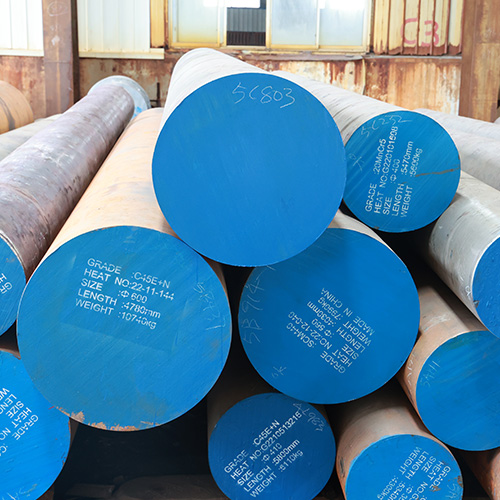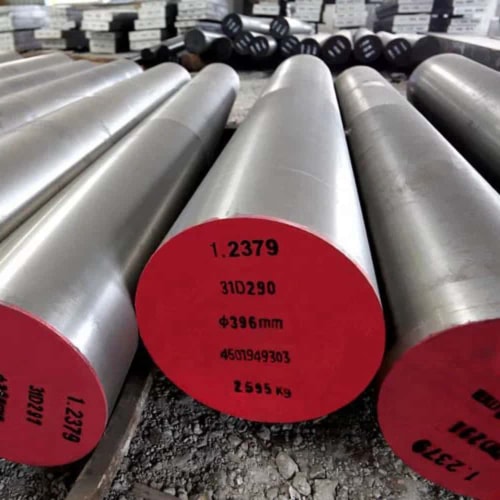Introduction

In today’s competitive manufacturing landscape, achieving superior product quality often hinges upon the precision and customization offered by advanced steel processing techniques. Custom steel processing plays a pivotal role in meeting exact specifications, enhancing durability, and ensuring consistency across production batches. This blog explores the critical aspects of custom steel processing and its profound impact on product quality and industry applications.
Understanding Custom Steel Processing
Custom steel processing involves tailored manufacturing techniques that cater to specific project requirements. This encompasses a range of methods including cutting, forming, welding, and surface treatments. Each technique is meticulously applied to achieve precise dimensions, desired mechanical properties, and aesthetic finishes. For example, in automotive manufacturing, custom steel parts are engineered to exact tolerances to ensure compatibility and reliability in vehicle assemblies.
Benefits of Custom Steel Processing
The advantages of custom steel processing are manifold. Firstly, it ensures precision and consistency throughout production, reducing the likelihood of defects and enhancing product performance. Secondly, tailored steel components are designed to withstand harsh environmental conditions, providing enhanced durability and longevity. Moreover, custom processing minimizes material waste and optimizes production efficiency, translating to cost savings and improved resource utilization for manufacturers.
Applications Across Industries
Custom steel processing finds extensive applications across diverse industries. In aerospace, for instance, specialized alloys and precision machining techniques are employed to manufacture lightweight yet robust components that meet stringent safety and performance standards. Similarly, in construction, custom steel beams and structures are fabricated to exact specifications, ensuring structural integrity and architectural design flexibility. The versatility of steel processing also supports innovations in consumer goods, industrial machinery, and renewable energy sectors.
Advanced Techniques and Innovations
Recent advancements in custom steel processing have revolutionized manufacturing capabilities. Computer-aided design (CAD) software enables engineers to simulate and optimize component designs before production, ensuring accuracy and efficiency. Automated cutting and welding technologies have streamlined manufacturing processes, reducing lead times and enhancing production scalability. Surface treatments such as powder coating and galvanization not only improve corrosion resistance but also enhance the aesthetic appeal of steel products.
Case Studies: Real-World Impact
Examining real-world applications illustrates the transformative impact of steel processing. In the automotive industry, precision-cut steel panels and components enable automakers to achieve superior fit and finish, enhancing vehicle aesthetics and performance. In renewable energy, custom steel brackets and support structures facilitate the efficient deployment of solar panels and wind turbines, maximizing energy output and durability in challenging environmental conditions.
Summary of Custom Steel Processing Techniques and Applications
| Technique | Description | Applications |
|---|---|---|
| Cutting | Precision cutting of steel sheets and bars to exact dimensions | Automotive, construction, metalworking |
| Forming | Shaping steel into desired forms using hydraulic or press brakes | Aerospace, architectural structures |
| Welding | Joining steel components with high precision using MIG, TIG, or robotic welding | Shipbuilding, heavy machinery |
| Surface Treatment | Applying coatings and finishes to enhance durability and aesthetics | Consumer goods, marine applications |
The Future of Custom Steel Processing

Looking ahead, advancements in materials science and manufacturing technologies promise to further elevate the capabilities of steel processing. Industry 4.0 initiatives, incorporating robotics and data analytics, are poised to revolutionize production efficiency and product customization. Innovations in sustainable practices, including recycling and eco-friendly coatings, align with global efforts towards environmental stewardship. Moreover, ongoing research into new alloys and composite materials holds potential for enhanced strength-to-weight ratios and novel applications in high-performance industries.
Conclusion
Custom steel processing stands at the forefront of modern manufacturing, empowering industries to innovate and excel in product quality and performance. By harnessing advanced techniques and embracing technological advancements, manufacturers can meet evolving market demands with precision, efficiency, and sustainability. As the global economy progresses, the role of custom steel processing will continue to expand, driving innovation and setting new benchmarks for manufacturing excellence.
FAQ
Q:What are the primary benefits of custom steel processing?
A:Custom steel processing offers precise dimensions, enhanced durability, and cost efficiency, ensuring superior product quality.
Q:How does steel processing impact product quality?
A:By tailoring manufacturing techniques to specific requirements, steel processing enhances consistency, mechanical properties, and aesthetic appeal.
Q:Which industries benefit the most from custom steel processing?
A:Automotive, aerospace, construction, and renewable energy industries leverage custom steel processing for critical applications that demand precision, durability, and performance.
